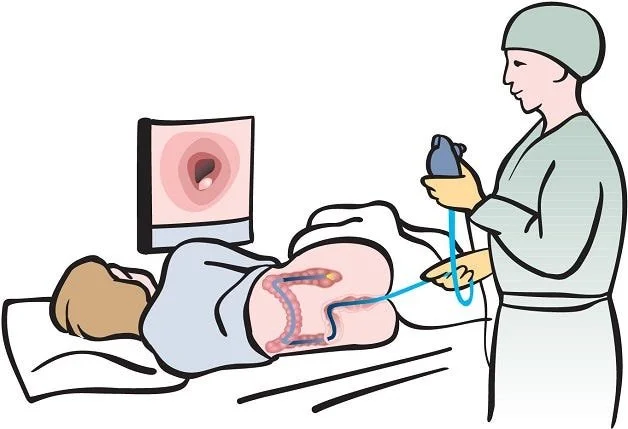Venous ulcers are an issue that many adults and elderly individuals might face, particularly those with underlying circulation concerns. These slow-healing wounds commonly occur on the legs and ankles and are linked to improper blood flow in the veins. Left unattended, they may lead to discomfort and impact daily life, making proactive care a central factor for many.
What Causes Venous Ulcers?
Venous ulcers are typically caused by poor circulation in the legs. They are tied to venous insufficiency, a condition in which the veins struggle to return blood from the lower extremities back to the heart. This can lead to the pooling of blood, increased pressure within the veins, and ultimately, skin damage that may result in ulcers.

Factors That May Increase Risk
Several factors can contribute to venous insufficiency or increase the likelihood of developing venous ulcers, including the following:
- Prolonged Sitting or Standing: Remaining in one position for long periods can hinder proper blood circulation.
- A History of Deep Vein Thrombosis (DVT): Previous episodes of blood clots in the veins may result in lingering vein damage.
- Age: Older adults are more commonly affected due to age-related changes in the vein walls and valves.
- Obesity: Excess weight places additional pressure on the veins, which could impair their function over time.
- Family History: A history of vein-related disorders in the family may increase susceptibility.
By understanding these potential factors, individuals can explore strategies to address them and support better overall leg health.
How Can Venous Ulcers Be Prevented?
Although not all risk factors can be avoided, there are several lifestyle adjustments and proactive measures that may support vein health and help lower the likelihood of venous ulcers. Walking and moderate forms of exercise encourage healthy circulation in the legs. Movement promotes blood flow and helps prevent the pooling of blood in the veins.
Compression stockings apply gentle pressure to the legs, improving blood flow caused by inefficient circulation. Compression stockings can be available in pharmacies or prescribed by healthcare providers for tailored support. Elevating the legs periodically throughout the day may aid in reducing swelling and encouraging blood flow. Placing the feet above heart level while resting can provide indirect relief for overworked veins. For individuals living with conditions such as diabetes or high blood pressure, effective management through proper treatment regimens and regular checkups can positively affect overall leg health and circulation.
How Are They Treated?
Though preventive measures are valuable, some individuals may still develop ulcers despite taking steps to promote vein health. Treatments generally focus on addressing underlying circulation issues and supporting the wound healing process. Compression therapy is commonly used in the treatment of venous ulcers. By applying external pressure to improve circulation, compression therapy can aid in reducing swelling and promoting blood flow to the area. Treatments tailored to underlying conditions such as venous insufficiency could prevent future ulcers from forming. Procedures may include minimally invasive options, such as laser therapy or sclerotherapy, to improve vein function or remove damaged veins.
When to Seek Medical Help
While many individuals may benefit from lifestyle changes designed to support vein health, it’s integral to seek professional input when appropriate. Persistent or worsening leg symptoms such as swelling or discoloration indicate the need for medical attention. For those managing venous ulcers or circulation concerns, consistent follow-ups serve as an opportunity to track progress and adjust care strategies as needed. Maintaining the health of your legs requires a mindful approach, one that takes prevention, care, and ongoing attention into account.
-
Common Types of Sports Injuries and How to Prevent Them
Staying active supports strength, balance, and mood, yet sports injuries interrupt training and daily life. These injuries range from minor tissue irritation to ligament tears. They arise from overuse, poor mechanics, sudden load, or inadequate recovery. Here are some typical problems and practical steps to lower risk: Sprains & Strains Sprains affect ligaments, while strains […]
-
How To Prepare for Your First OBGYN Appointment
An OBGYN specializes in women’s reproductive health, providing care that spans from routine checkups to pregnancy and menopause management. Preparing for your first OBGYN appointment can help you feel more comfortable, make sure your concerns are addressed, and make the most of your visit. Here’s how to prepare for your first OBGYN appointment: Gather Medical […]
-
How To Treat ADHD
Attention-deficit/hyperactivity disorder (ADHD) affects focus, impulse control, and activity levels. Symptoms often include distractibility, restlessness, and trouble organizing tasks. Diagnosis involves a clinical history, symptom checklists, and input from family or teachers. Treatment targets daily function and safety while addressing co-occurring issues such as anxiety or learning differences. No single pathway fits everyone, so approaches […]
-
What To Expect During Your Colonoscopy Procedure
A colonoscopy is a medical procedure used to examine the inner lining of the large intestine and rectum. It involves the use of a flexible tube with a camera, which allows direct visualization of the colon to identify abnormalities such as polyps, inflammation, or lesions. This procedure is regularly performed for screening, surveillance, and diagnostic […]
-
How Pacemakers Help Manage Arrhythmias and Improve Quality of Life
The human heart depends on precise electrical signals to maintain its rhythm. When those signals become irregular or unreliable, the result is often a condition known as arrhythmia. Left unmanaged, arrhythmias can cause uncomfortable symptoms and potentially disrupt daily activities. Pacemakers offer a reliable solution to regulating heart rhythms, providing patients with a path to […]
-
How To Choose the Right Psychiatrist for Your Needs
A psychiatrist is a medical doctor who specializes in diagnosing and treating mental health conditions. Unlike other mental health professionals, psychiatrists can prescribe medications in addition to offering therapy. Their training equips them to handle complex or overlapping conditions such as depression, anxiety, bipolar disorder, and schizophrenia. Finding the right psychiatrist often starts with identifying […]






Leave a Reply